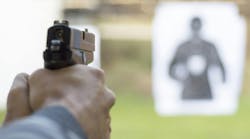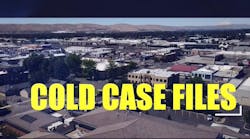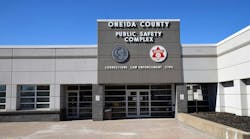Police officer candidates say the same thing during their entry oral interview, "I want to help people." Throughout the twenty years of seeing society at its worst, I have seen my share of children killing children, parents molesting children, drug users stealing anything that isn't nailed down, and the cynicism that invariably encompasses veteran officers, feeling as though they are not really helping people.
It is rarely known how a police officer's actions affect the people with whom we come into contact. An incident where I was involved a few years ago made me realize how much impact an encounter with a police officer can be and how it may come back to us, either positive or negative.
At 5 A.M., the end of a long twelve-hour graveyard shift and almost quitting time, I was at the station putting gas in my patrol car when the call came out: "armed kidnapping in progress." I heard a unit being dispatched lights and siren, but he was coming from the other side of the city, a good five-minute drive. Driving to the call, believing that by the time the dispatched officer arrived the suspect (if the call was legitimate) would be long gone, I decided to head over to supervise the incident. When I was halfway there, I heard the first arriving officer say over the radio that there was a van in the parking lot of the apartment complex with the doors open. This made me a little nervous.
My team arrived and we began working our way through the maze of the complex to find the right building. When we saw a male and a female walking toward us, we stopped them. Believing they were connected to the call, one of my partners began talking to the girl while the other began searching the male for the gun. They ended up not being involved in the kidnapping. While this was going on, ten feet in front of us a heavy screen door was thrown open with a loud slam. Our attention was now focused on the doorway. Out walked two males, one holding a gun to the back of the other. The suspect with the gun seemed surprised and pointed the gun to his hostage's head. Fearing the three officers in front of him, he swung the gun in our direction. We all dove for cover, as did the innocent citizens we had detained. POP was all I heard as I reached the corner of the building.
Hearing only one shot from the suspect, I looked around the corner to find the victim and the suspect on the ground, fighting over the gun. By this time the innocent couple had run to safety. Suddenly, the gun they were fighting over went flying as the suspect got up. He then began pulling a second gun from his waistband. My partners and I engaged the suspect in a gun battle. Within three seconds, a dozen shots had been fired and the suspect lay bleeding--still trying to get up and fight. Following a rush of radio traffic, sirens, officers running to our aid, paramedics finally able to get in, and then the quiet of a crime scene, I stood over the now-dead suspect, thinking I had seen him before. A Cambodian gang member and parolee, I had possibly arrested before, I couldn't remember.
The compassion shown from officers and supervisors of all ranks from the PD, calling me to see if I needed anything throughout the following days, all showing genuine concern made me proud to be part of such a wonderful professional family.
What I didn't come to appreciate until later was who we had killed during that gun battle. A few months before, at a nearby apartment complex, we had been called to deal with a man on the apartment roof, amped out on methamphetamine. He had to be shot with less-lethal ammunition before he would surrender. His mother and sisters had called us because of his drug-influenced behavior after getting out of prison. On that occasion, we were able to take him into custody without injuries to anyone.
Just after this roof incident, as the other officers walked the suspect to the patrol cars, I saw the sister put her arm around her crying mother. Years ago, I wouldn't have stopped, needing to get back out on the street to arrest the next bad guy. During the last few years I had gone through a life-altering experience. My own son, using methamphetamine, had been living out on the streets, kicked out of our house at eighteen years old, turned in to the cops by a devastated dad. Now my son had been sober for only a few months with a newborn baby as his inspiration to stay clean. I walked back to that mother and sister and spent several minutes with them, explaining what methamphetamine does to families, where to get help for them and their son and/brother. I showed--no, I actually felt genuine compassion for this family, having shed those same tears. They thanked me as I left and I never saw or talked to them again, although I am sure we think of each other now and then on different levels. I wondered if they actually knew the names of the police officers that killed their son.
The reason I bring these separate-but-related incidents to light is the payback. The family of the drugged-out kidnapper we had to shoot never filed a lawsuit against the police department or the city. Why? I can only guess, but it is curious to me why in this day's litigious society why they wouldn't. My guess is the time spent by a concerned patrol sergeant trying to console a crying mother and daughter months before, was never forgotten. They knew their son created his own death, and the police were doing what they had to. I could be wrong about why they didn't sue, but it really doesn't matter. What I did during that first contact was right. It felt right, and I walked away knowing I had given something to that family--hope and some knowledge of how to help themselves and their son. I had no idea how that compassion would be returned to me.
When an off duty officer needs the police, especially calling a different agency than the one they work for and not identifying themselves as an officer, they know what it is like being on the other side of the phone call, waiting for what seems like a long time for the cops to show up. They then have to explain the situation to a uniformed officer who may or may not think that your crime is important enough to interrupt their coffee break. Having to deal with these situations from the "other side of the badge" will forever make you a better and more compassionate peace officer.
Years on the job, seeing humanity at its worst, can make an officer callous and cold. Being compassionate, both on the job and off, is beneficial not only to the intended audience, but returned in many ways, some known and others unknown.


